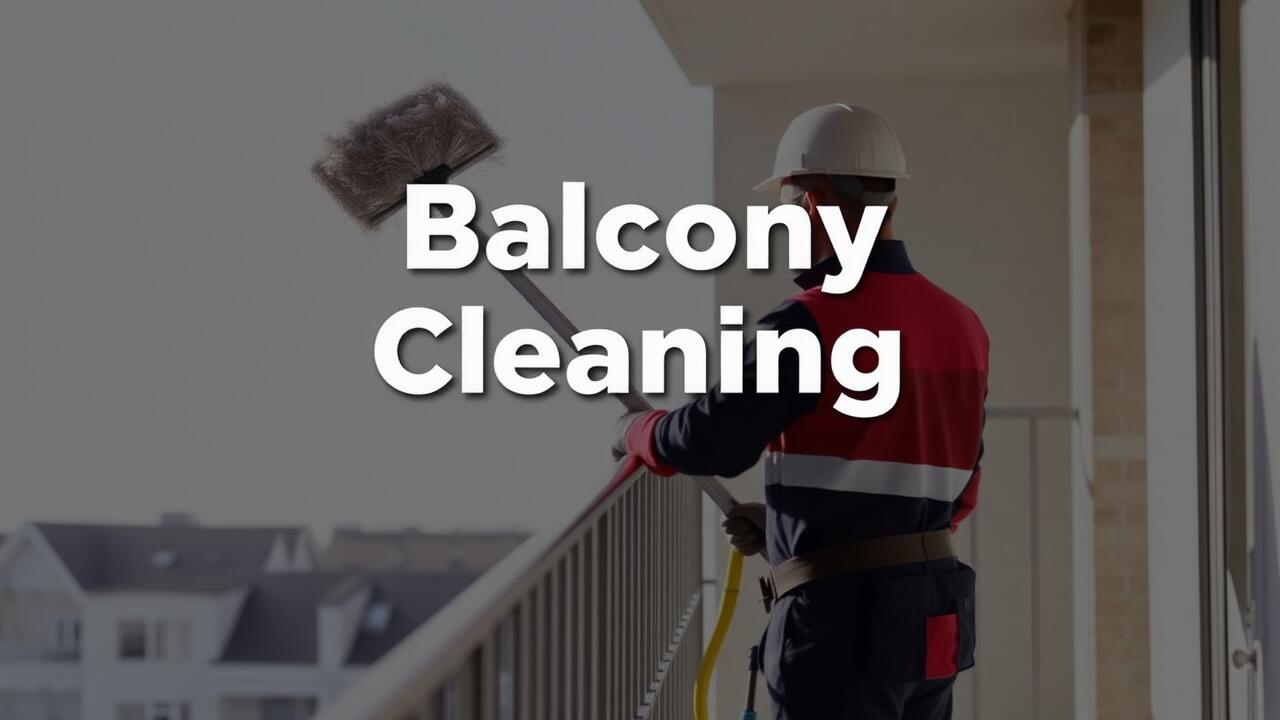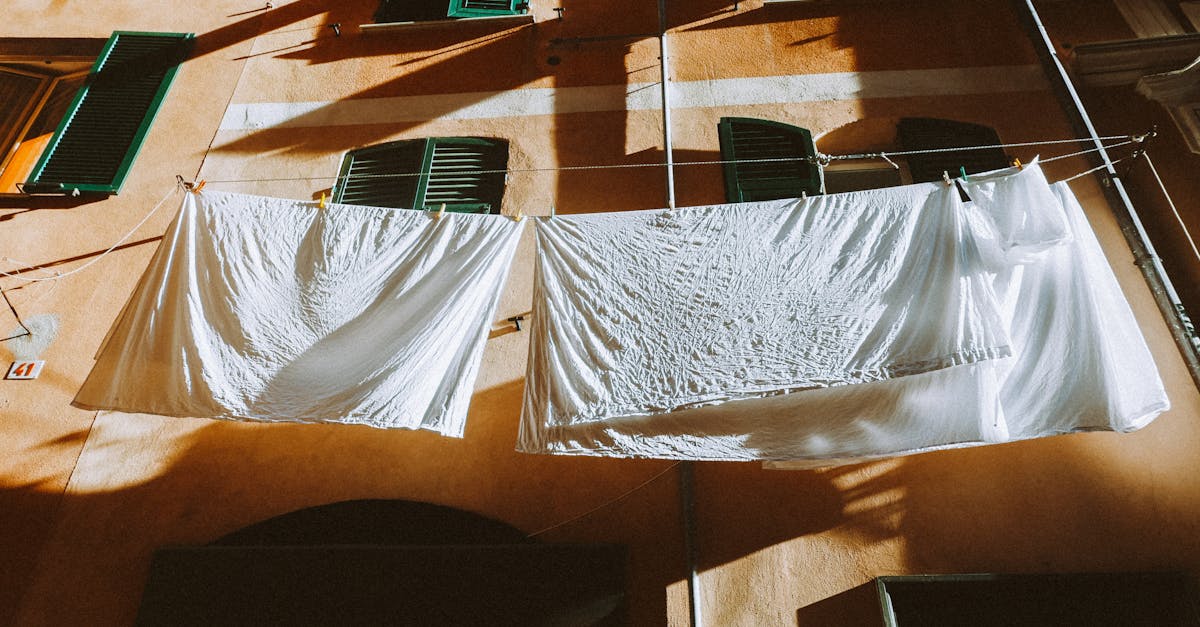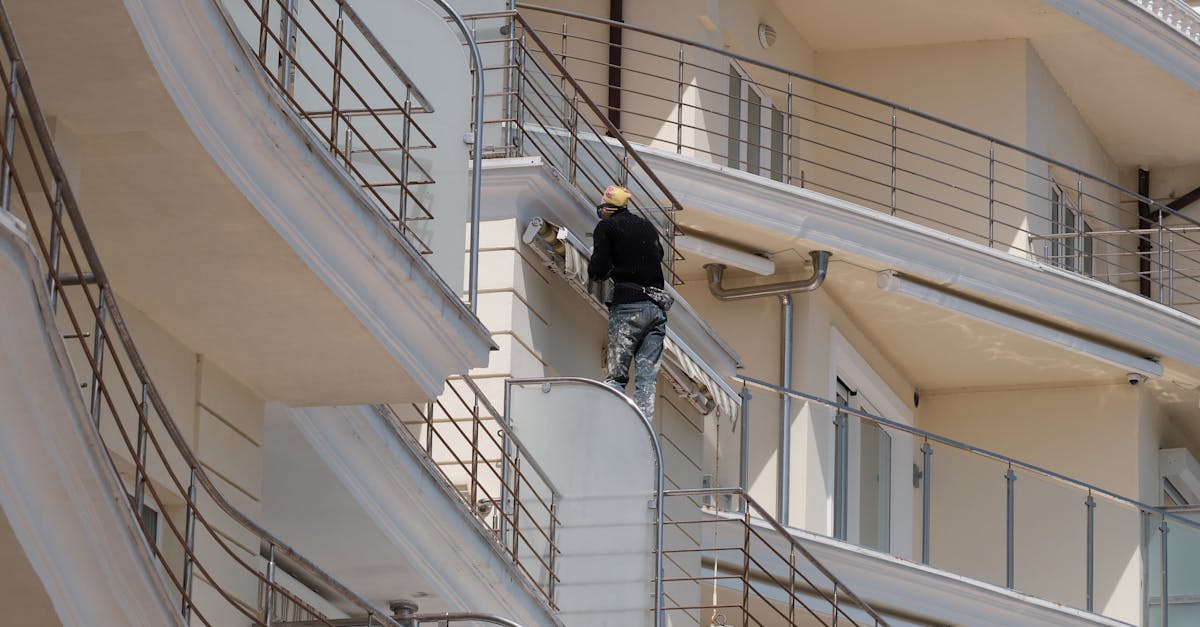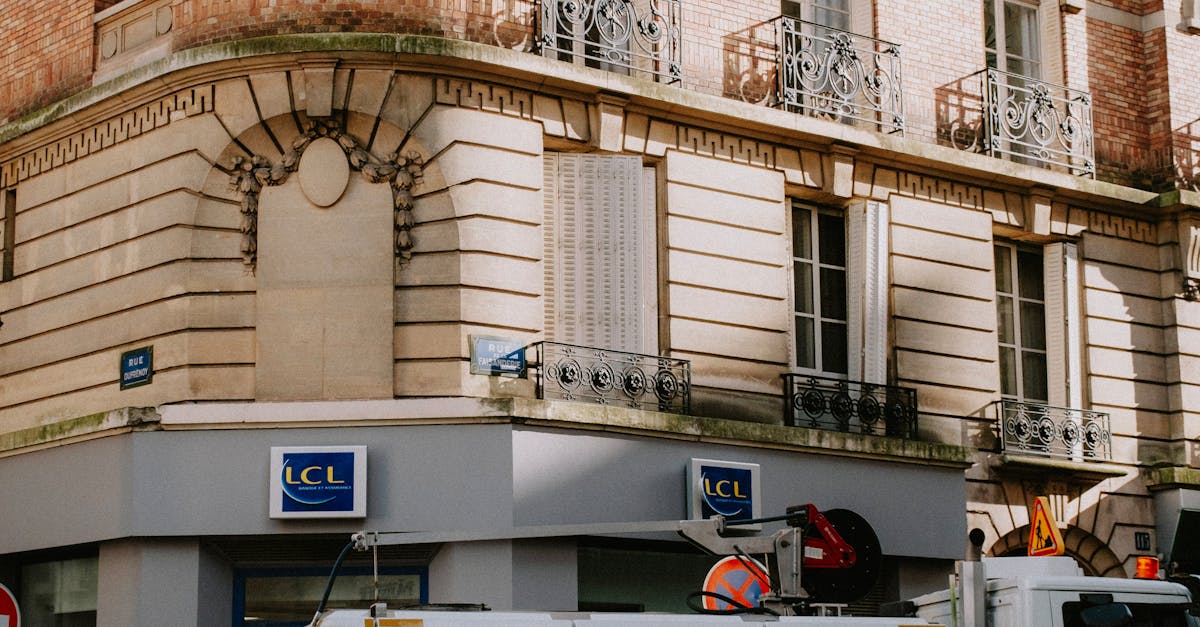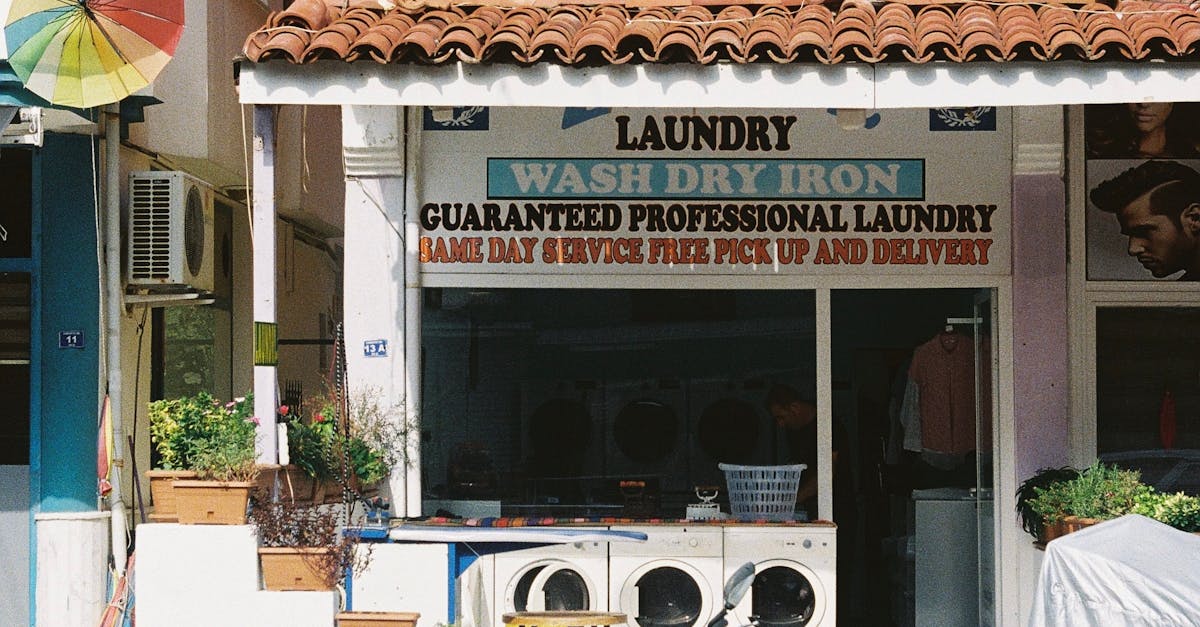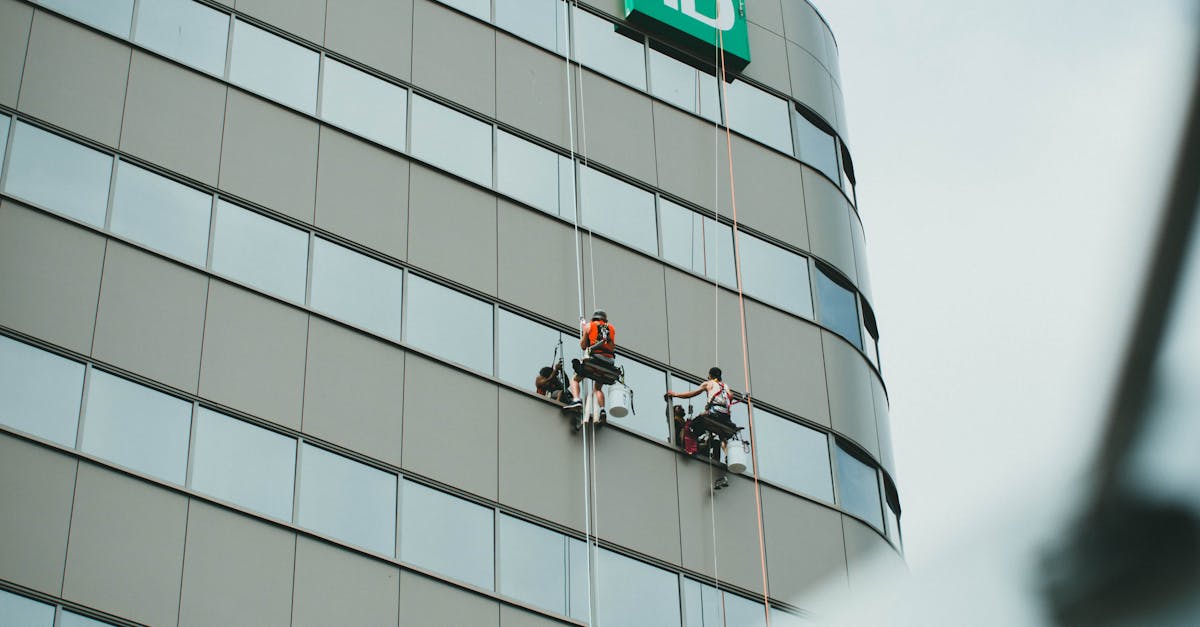
How to Manage Water During the Cleaning Process
Managing water effectively during the cleaning process is essential, especially on balconies without proper drainage. Start by using bucket systems to collect excess water. Fill a bucket with a cleaning solution and use a second bucket to rinse surfaces. This method prevents water from running off the edge and keeps your balcony tidy. For balconies like those in Balcony Cleaning Loughborough, Leicestershire, it is particularly important to minimise the risk of overflow, as leaving puddles can lead to residue build-up and attract pests.
Another useful technique is to work in sections to control where the water flows. Clean one area at a time and immediately soak up any remaining water with absorbent towels or mops. This process helps to ensure that dirt and debris do not spread across the balcony. Additionally, consider using a squeegee to guide water towards your bucket or designated collection area, rather than allowing it to pool. Being mindful of water flow not only enhances the efficiency of your cleaning efforts but also protects both the balcony structure and your belongings.
Efficient Water Disposal Techniques
When cleaning a balcony without drainage, managing water is crucial to prevent water pooling or damaging the surrounding areas. Begin by using absorbent materials like mops or towels to absorb excess water after scrubbing. Collect the used water in buckets. This method allows for easier disposal while keeping the cleaning process contained to one area. If you live in an area like Leicestershire, you might have local regulations regarding water disposal, so check for any guidelines that apply.
To dispose of the collected water, decide whether it can be safely poured down a nearby drain or if it requires a different approach. If the water has accumulated dirt or cleaning products, it might be best to dispose of it in a garden or yard where it can blend with the soil, provided no harmful chemicals are involved. It is important to ensure that your disposal methods comply with local waste management regulations. For those seeking professional guidance on balcony cleaning, a service like Balcony Cleaning Leicestershire could provide tailored advice on efficient disposal techniques.
Tips for Maintaining a Clean Balcony
Regular maintenance of a balcony can prevent the accumulation of dirt and debris. Invest in a good-quality broom to tackle leaves and dust. A handheld vacuum can also be useful for smaller messes. Incorporating plants can add to the aesthetic and encourage a cleaner environment. Choose suitable pots that retain moisture and minimise spillage, helping to keep the space tidy.
Setting a specific cleaning routine will make balcony upkeep more manageable. Consider allocating time each week for a quick check-up. During this time, dust surfaces and wipe down railings to keep them looking fresh. For residents in need of professional assistance, Balcony Cleaning Loughborough, Leicestershire, offers tailored services that ensure a pristine outdoor space without the hassle.
Regular Cleaning Routines
Establishing a regular cleaning routine is essential for keeping your balcony tidy and well-maintained. Aim to sweep away debris at least once a week. This prevents the accumulation of dirt, leaves, and other organic materials that can lead to stains or attract pests. A simple broom or a hand brush can be effective for this task. If you notice any specific spots that accumulate grime or water, make a note to address those areas thoroughly during your deeper clean.
In regions such as Nottinghamshire, where the weather can be unpredictable, consider setting up a schedule that aligns with the seasonal changes. Engaging in more thorough cleaning sessions at the beginning of spring or after particularly heavy rains helps maintain hygiene and aesthetics. Using a simple mixture of mild detergent and water can work wonders for surface cleaning. Ensure you follow up with a rinse using a sponge or a cloth to avoid any residue build-up. Keep in mind that efficient balcony cleaning in Nottingham and similar areas requires not only diligence but also a practical approach to managing the climate’s impact.
Safe Practices While Cleaning
When cleaning a balcony without drainage, ensuring your safety should be paramount. Start by wearing appropriate protective gear, such as gloves and non-slip footwear, to prevent any accidents while working on potentially slippery surfaces. Maintain a clear workspace by removing any furniture or decorative items that could obstruct your movement. This not only minimises the risk of damaging your belongings but also allows for easier access to all areas of the balcony.
It is also essential to consider the weather conditions before undertaking balcony cleaning tasks. Avoid cleaning when it’s raining or windy, as wet surfaces can pose dangers. If you are in the Leicestershire area, opting for balcony cleaning services specifically tailored for your needs can provide an added layer of safety. Having professionals handle the job ensures that the task is completed effectively while minimising risks to yourself and your surroundings.
Protecting Yourself and Your Belongings
When embarking on any cleaning project, prioritising safety is essential. Wear suitable clothing and closed-toe shoes to protect your feet from any sharp objects or cleaning substances. If the cleaning process involves using chemicals, ensure to don gloves and a mask to shield yourself from harmful fumes. By taking these precautions, you can mitigate the risks associated with balcony cleaning.
It is also wise to safeguard your belongings during the cleaning process. Move any furniture or plants that could be damaged or become soaked in water. If items cannot be removed, consider covering them with tarpaulins or old sheets to prevent water damage. For those in need of professional assistance, searching for “Balcony Cleaning Loughborough, Leicestershire” can yield local services that ensure both safety and efficiency.
FAQS
Why is it important to clean a balcony without drainage?
Cleaning a balcony without drainage is essential to prevent water accumulation, which can lead to mould growth and damage to the balcony structure. Proper cleaning helps maintain hygiene and enhances the overall appearance of your outdoor space.
What are the best materials to use for cleaning a balcony without drainage?
It is recommended to use a broom, mop, bucket, and biodegradable cleaning solutions. Microfiber cloths and sponges are also effective for wiping down surfaces without leaving residue.
How can I manage excess water during the cleaning process?
To manage water, consider using minimal amounts and mopping up any excess immediately. You can also place towels or absorbent mats around the edges to soak up spills and prevent water from flowing over the sides.
What regular cleaning routines should I follow for maintaining my balcony?
A regular cleaning routine should include sweeping the balcony weekly, washing surfaces monthly, and inspecting for any signs of wear or damage. Seasonal deep cleaning is also recommended to address any accumulated dirt or debris.
Are there any safety precautions I should take while cleaning my balcony?
Yes, it’s important to wear non-slip footwear to prevent falls, use gloves to protect your hands from cleaning chemicals, and ensure that any ladders or tools are stable and secure while you work.
